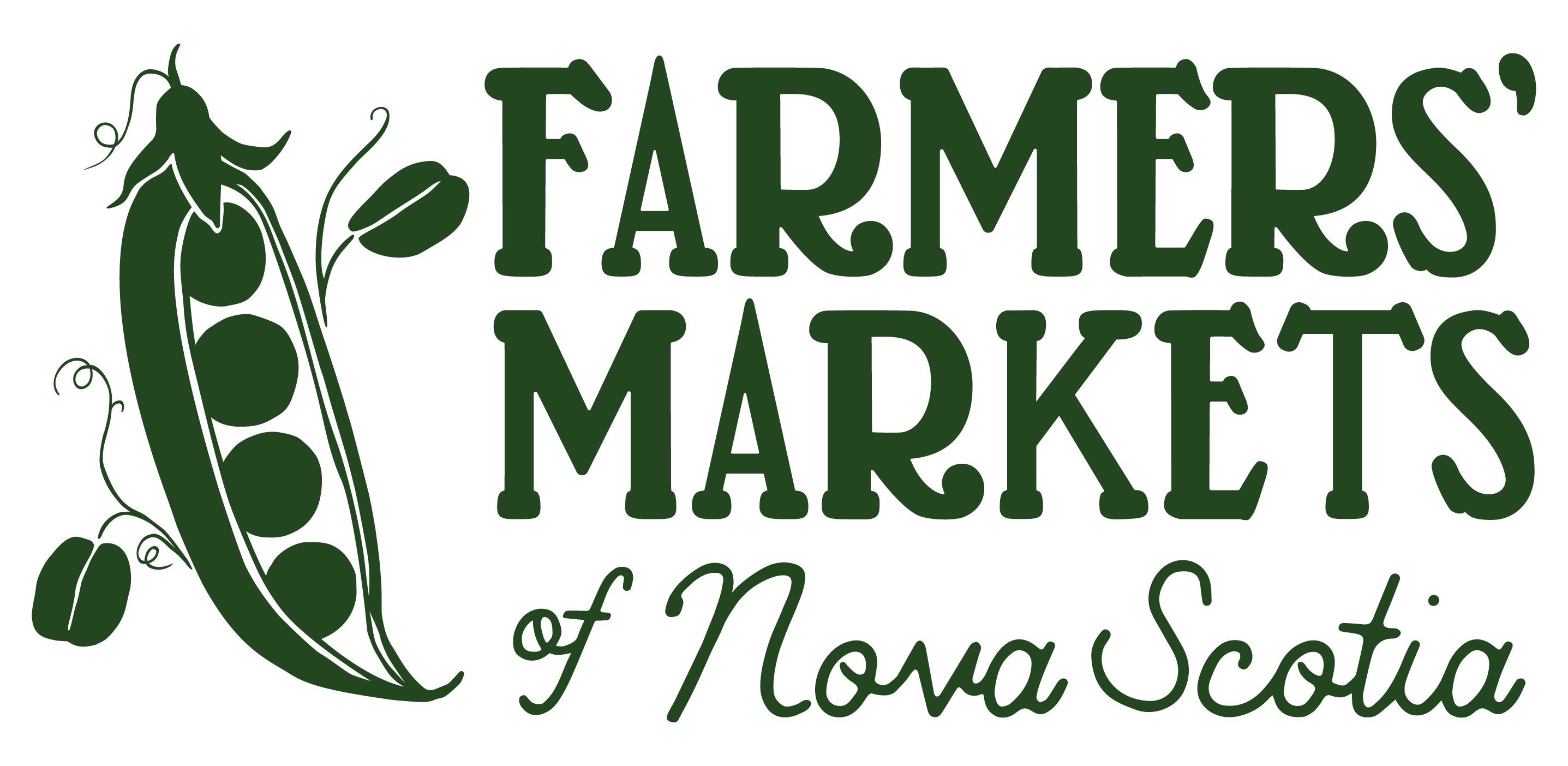FOR IMMEDIATE RELEASE
December 7, 2021
Press release: Nova Scotia Power runs risk of putting province’s farmers’ markets out of business
Note: A PDF of this press release can be found by clicking here.
Many of Nova Scotia’s farmers’ markets are facing insurmountably expensive power bills, and some are running the risk of going out of business. Despite requests from several farmers’ markets, Nova Scotia Power Incorporated (NSPI) continues to classify and charge farmers’ markets as commercial businesses, charging farmers’ markets expensive demand charges, a practice normally reserved for for-profit businesses. NSPI does not charge demand charges to community halls, legions, recreational facilities, or churches, yet continues to do so for farmers’ markets, which are non-profit organizations. Farmers’ Markets of Nova Scotia (FMNS), the province’s farmers’ market sector association, believes it’s high time that NSPI puts an end to this unfair practice.
The biggest reason why farmers’ markets are being charged so much more than they ought to be is because of a process that NSPI calls “demand billing”. Demand billing is how most commercial power rates get calculated, and demand bills are broken down into “energy charges” and “demand charges”. FMNS has noted that over a third of many of its member farmers’ markets’ power bills are comprised of demand charges alone—charges that similar organizations such as community halls, faith organizations, and recreational facilities do not have to pay.
Almost every farmers’ market in Nova Scotia is structured as a non-profit organization, and Section 73 of Nova Scotia’s Public Utilities Act states “the rate or charge for electric energy supplied by an electric public utility to a customer that is a senior citizens’ club, service club, volunteer fire department, a Royal Canadian Legion, community hall or recreational facility owned by a community and used for general community purposes, a charitable or religious organization or institution shall be at a rate or charge not in excess of the domestic rate.”
“A farmers’ market most certainly serves as an entity used for ‘general community purposes’”, says Justin Cantafio, Executive Director of FMNS. “Farmers’ markets are regulated as ‘Public Markets’ by the Nova Scotia government. They’re community organizations, social and cultural hubs, small business incubators, and spaces for the public to buy local food and goods directly from producers. If legions and recreational facilities qualify for domestic rates, I don’t see why farmers’ markets can’t.”
Demand charges are calculated based on peak demand compared to normal demand. Peak demand is the highest amount of electricity used within a billing period compared to normal usage. For farmers’ markets, peak demand compared to normal demand can be staggeringly different. That’s because farmers’ markets generally only operate at full capacity for a few hours once or twice a week. There may be a high electricity demand for several hours before and during a farmers’ market’s market day, with vendors firing up heating and cooling equipment, and all lights and electrical systems being turned on. But under demand billing, spikes in energy consumption are punished by demand charges.
Those spikes can be significant for farmers’ markets because so much happens so quickly during market day, and the difference between peak demand and normal demand results in some of FMNS member farmers’ markets paying thousands of extra dollars on their power bills that they wouldn’t have to under domestic billing, because they’re not running that peak demand for more than a few hours per week. Demand charges might work to regulate electricity consumption by big businesses and industrial consumers, but they’re far from effective for farmers’ markets and other community organizations.
Despite this provision in the Section 73 of the Act, NSPI continues to charge most of Nova Scotia’s farmers’ markets with commercial rates rather than domestic rates, with the reasoning that under their interpretation, farmers’ markets do not qualify as charitable organizations. Several FMNS member farmers’ markets have completed an Application for NSPI Domestic Service Rate for non-residential customers (as provided under Section 73 Public Utilities Act) form with NSPI, but to date no farmers’ market has been successful.
Erick Too, Senior Costing and Rate Analyst with NSPI, was contacted by the Cape Breton Farmers’ Market in Sydney on April 13, 2021, with a request to have the domestic service rate charged to their public market rather than the commercial rate. On April 28, Mr. Too responded stating that “the Cape Breton Farmers’ Market does not fall within the types of activities which are eligible for the Domestic Rate under the Act”.
Pauline Singer, Manager of the Cape Breton Farmers’ Market asked for an appeal on the ruling this past summer, and was directed to Don Farmer, NSPI’s Dispute Resolution Officer. Mr. Farmer submitted his ruling on November 4, 2021, simply regurgitating the existing wording under Section 73 of the Nova Scotia Public Utilities Act, stating, “in my view, [it] very clearly states the specific groups to which the domestic rate should apply, that Cape Breton Farmers’ Market is clearly not one of the groups; and that there is no room for interpretation by me to accommodate groups not therein specifically identified.”
Pauline Singer and the Cape Breton Farmers’ Market strongly challenge this ruling. “The definition of what constitutes a “community group” needs to be updated to reflect what is actually going on in our communities today, not 30 years ago,” says Singer. “The way it is written under the Public Utilities Act Section 73 is causing hardship and they do not allow for any interpretation of the wording. It is placing not-for-profit organizations such as ourselves in a position where we are going to have to shut the doors. We simply cannot afford commercial power rates with a demand charge on top of that. If organizations can prove that they are providing a service to the community, they should qualify for the not-for-profit rate.”
Margaret Ells, President of FMNS, says she explored the reduction of the demand power rates when she began her role as market manager of the Truro Farmers’ Market in 2016. “The very structure of the demand charge format works directly against the Farmers’ Market model of being open to connect local producers and small businesses with customers one day a week. By its nature this results in a spike in energy use, making it cost prohibitive for markets that use electric heat to even consider operating year-round. Without the support of the Town of Truro, and the switch to propane heating, our market would not have been able to grow into a year-round market. A number of markets are facing the hard decision on whether they can continue to operate under the burden of the power expenses. Given the vital role our farmers’ markets play in local economies, losing even one market due to this easily fixable billing situation would be reprehensible.”
FMNS also reached out to Erick Too on November 15, 2021. On November 23, 2021, FMNS received a response from Mr. Too stating that he was assembling a team to meet with FMNS regarding this issue, but that his colleagues’ calendars were booked. FMNS has yet to hear back since that email, despite sending several follow ups. FMNS also reached out to the Nova Scotia Utilities and Review Board (UARB) on November 15 but was told by a representative that the UARB would be unable to help in the matter.
At the moment, FMNS and its member farmers’ markets are discouraged that NSPI is not considering the same rate as other community organizations that are charged domestic rates with no demand charges. Should Erick Too and his team at NSPI not agree to meet with FMNS to resolve this matter, the next step would involve FMNS requesting that the Nova Scotia Government make an amendment to Section 73 of the Nova Scotia Public Utilities Act to include “farmers’ market” under its list of organizations that are to be charged domestic rates rather than commercial rates.
In the meantime, as power bills surge with the colder months, FMNS and its year-round member farmers’ markets remain unclear on what actions will be taken, and when. Until then, many of Nova Scotia’s farmers’ markets remain in a financially precarious position from demand charges that could otherwise be avoided by Nova Scotia’s primary—and wholly privatized—electric utility company.
– 30 –
For more information or to request an interview, contact:
Justin Cantafio
Executive Director
Farmers’ Markets of Nova Scotia Cooperative
902-932-7282
FMNS@farmersmarketsnovascotia.ca
Find us online at www.farmersmarketsnovascotia.ca
Facebook: Farmers’ Markets of Nova Scotia
Twitter: @MarketFreshNS
Instagram: @marketfreshns
About Farmers’ Markets of Nova Scotia (FMNS) and our members
Founded in 2004, FMNS is a non-profit cooperative serving as Nova Scotia’s farmers’ market sector association. With over 40 unique members representing over 1,500 owner-operated businesses across the province, our cooperative is the unified voice of our region’s farmers’ market sector. Our cooperative advances growth and prosperity for our member farmers’ markets and their vendors through training, resources, advocacy, promotion, and community. Together, our organization and our members are building a cooperative and dynamic farmers’ market sector cultivating successful businesses, vibrant local economies, and healthy communities.
Our cooperative’s member farmers’ markets are small business incubators, job creators, and hubs for social and economic activity. They’re the places where producers and vendors sell directly with their target market, where entrepreneurs find a low-overhead venue to create and develop their minimum viable product, where artisans showcase and sell their wares, and where new Canadians ply their trade. Our cooperative’s farmers’ markets are also a driving force in Nova Scotia’s buy-local movement and the trendsetters that launched and continue to bolster the province’s thriving agri-tourism industry.




